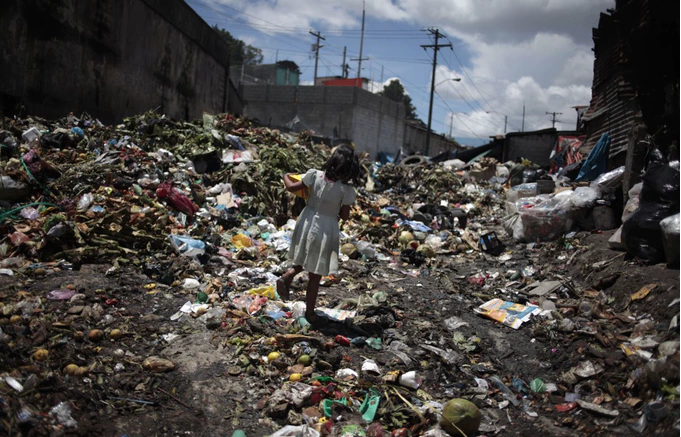By Katherine Conner and Caeley Sacher
Producer and Director Alvaro Argueta and Executive Producer Anna Pollock will explore Guatemala’s polluted watersheds in order to create a documentary that raises awareness and evokes solutions towards Guatemala’s lacking waste management system.
While Argueta is native to Guatemala and is familiar with the effect of the increasing pollution on the beaches, Pollock was appalled by the amount of waste in the water when she visited Guatemala in 2011. Since then, she has been determined to find a solution. “You go on the beach and you feel overwhelmed by the amount of trash,” said Pollock. Since Argueta and Pollock met in 2012, they have passionately worked to prevent the degradation of Guatemala’s beautiful coasts. Pollock received a Masters in Public Health in 2011, afterwhich she moved to Guatemala to work on community health initiatives. Argueta has a background in audio and visual media and is familiar with the documentary process.
Pollock and Argueta will combine their skills in the creation of their documentary Disposable Addiction. “Our goal is not to make another sad documentary, but instead to make an upbeat, feel-good film highlighting innovation and ingenuity in Guatemala,” said Pollock and Argueta on their website. Because of this, Pollock and Argueta aim their film’s awareness not at American viewers to stimulate sympathy, but at Guatemalan communities that seek reform.
They hope that Disposable Addiction will be, “a film that leaves our audience feeling excited about what the future holds,” they said.

A child enjoys a day in the sun (Photo credit by Kickstarter).
While many of the watershed’s community members have proposed solutions to reform Guatemala’s waste management system, a lack of communication between these local organizations has caused weak results.
“We want to bring all this knowledge to Guatemala and bring collective organizations together,” said Argueta. By uniting these existing groups, Pollock and Argueta can “make a menu of solutions that are already happening in Guatemala,” said Argueta. Furthermore, Pollock and Argueta will highlight projects, non-profit organizations, and social groups that have begun improvement within their polluted local communities.
In order to stimulate enthusiasm about waste management in Guatemala’s communities, as they film, Pollock and Argueta will learn about the recycled materials that local non-profit organizations use to build schools and community buildings. Additionally, Pollock and Argueta will explore and film social enterprises that take landfill plastic and recycle it into another material, such as spools of thread. Pollock and Argueta will also visit and film communities that have created local government regulations on waste, including trash barriers and bans on plastic bags.
Pollock and Argueta hope that the awareness Disposable Addiction raises will unite these sustainable organizations, and members of surrounding communities will adopt these practices.
In addition to uniting the local communities, they will “engage with local authorities to support the development of appropriate, concrete solutions for implementation, and with business leaders to promote long-term sustainable alternatives to single-use products,” Pollock and Argueta said. They hope that this cooperation will provoke reformative environmental policies. As a result, the amount of clean fresh water will increase, which 95% of is polluted by industrial waste due to neglect from corrupt political officials.
Creating Disposable Addiction will bring knowledge to communities that are ignorant to the dangers of the lacking waste management, resulting increased receptivity to change.

